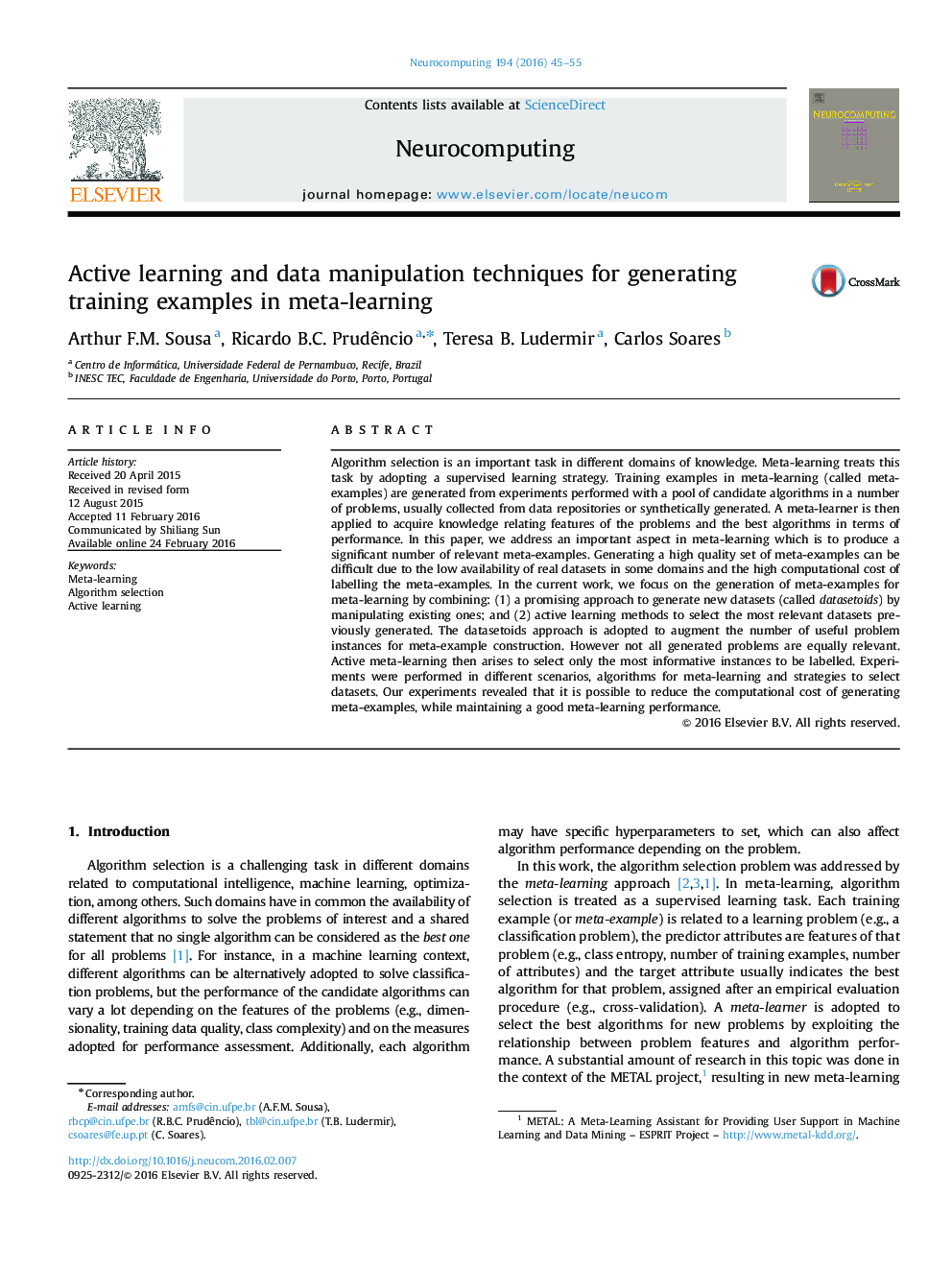| Article ID | Journal | Published Year | Pages | File Type |
|---|---|---|---|---|
| 408293 | Neurocomputing | 2016 | 11 Pages |
Algorithm selection is an important task in different domains of knowledge. Meta-learning treats this task by adopting a supervised learning strategy. Training examples in meta-learning (called meta-examples) are generated from experiments performed with a pool of candidate algorithms in a number of problems, usually collected from data repositories or synthetically generated. A meta-learner is then applied to acquire knowledge relating features of the problems and the best algorithms in terms of performance. In this paper, we address an important aspect in meta-learning which is to produce a significant number of relevant meta-examples. Generating a high quality set of meta-examples can be difficult due to the low availability of real datasets in some domains and the high computational cost of labelling the meta-examples. In the current work, we focus on the generation of meta-examples for meta-learning by combining: (1) a promising approach to generate new datasets (called datasetoids) by manipulating existing ones; and (2) active learning methods to select the most relevant datasets previously generated. The datasetoids approach is adopted to augment the number of useful problem instances for meta-example construction. However not all generated problems are equally relevant. Active meta-learning then arises to select only the most informative instances to be labelled. Experiments were performed in different scenarios, algorithms for meta-learning and strategies to select datasets. Our experiments revealed that it is possible to reduce the computational cost of generating meta-examples, while maintaining a good meta-learning performance.
